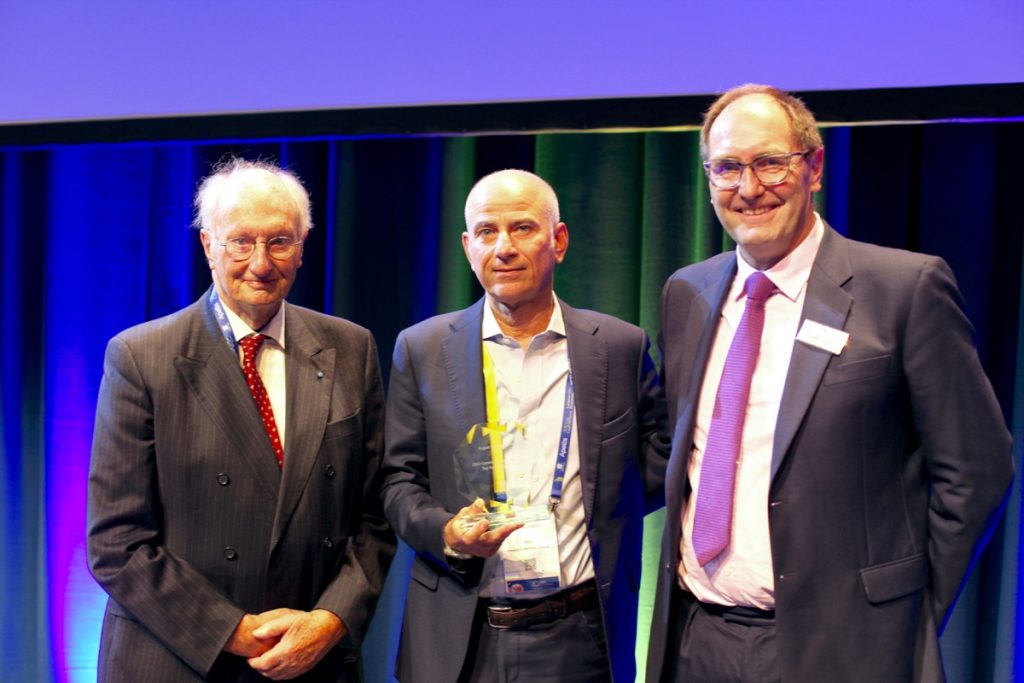The PULSAR trial in wet age-related macular degeneration demonstrated that aflibercept 8 mg administered every 12 or 16 weeks is noninferior in vision gains compared with aflibercept 2 mg every 8 weeks.
The 60-week and 96-week outcomes of the trial were presented by Paolo Lanzetta MD, who was designated winner of the inaugural August Deutman Award for best free paper for his report.
Dr Lanzetta explained that the PULSAR study is a randomized, double-masked, multicentre, 96-week trial of over 1,000 patients with treatment-naïve neovascular age-related macular degeneration (nAMD). Three groups of patients were randomized to receive different doses and dosing intervals of aflibercept after the initial loading phase of 3 monthly injections: 2mg every 8 weeks, 8mg every 12 weeks or 8mg every 16 weeks.
The primary endpoint of the study was the change in best corrected visual acuity from baseline to week 48 with a noninferiority margin of four letters. The key secondary endpoint was the proportion of patients who were dry with no subretinal fluid or intraretinal fluid at week 16 in the central subfield, noted Dr Lanzetta.
The results showed that the high dose groups were non-inferior to the standard dose group in terms of visual acuity and central subfield thickness.
“The patients who received the high dose in both groups were non-inferior in terms of visual acuity throughout the course of the whole study at 48, 60 and 96 weeks. And the central subfield thickness also showed very similar outcomes, with the 2mg behaving very similar to the new higher dose at each single time point,” he said.
The study also explored the possibility of extending the dosing interval and found that a significant proportion of patients were able to maintain a 12-week or longer retreatment interval between injections.
“This is very important because we are really keen to see how much we can stretch the interval time for treatment and potentially reduce the retreatment burden in clinical practice,” said Dr Lanzetta.
The safety data also showed no major concerns, with no cases of high intraocular pressure.
Summing up, Dr Lanzetta said that the study demonstrated that aflibercept 8 mg monotherapy showed robust efficacy benefits, the vast majority of patients were maintained on treatment intervals of 12 weeks or longer, and the 8-mg dose showed a safety profile similar to the 2-mg dose.
This paper is available on demand for all registered delegates.


